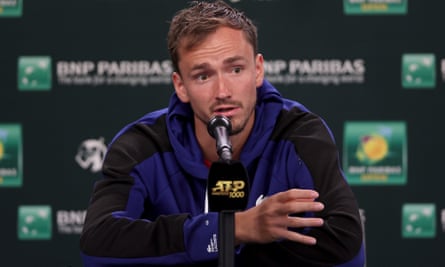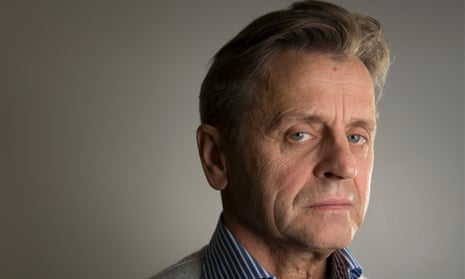Russian performers and artists should not be made to pay the price for the war in Ukraine, according to one of the greatest Soviet-born ballet dancers.
Mikhail Baryshnikov, the leading male classical dancer of the 1970s and 1980s, is not in favour of imposing heavy sanctions on fellow artists or sports stars.
This month conductor Valery Gergiev and operatic soprano Anna Netrebko were among those who lost prestigious work in the west due to their ties to Vladimir Putin’s regime.
“An open exchange in the arts is always a good thing,” Baryshnikov said. “I don’t think it’s right to put the weight of a country’s political decisions on the backs of artists, or athletes, who may have vulnerable family members in their home country. For people in those exposed positions, neutrality is a powerful statement. And if you want me to be specific, Daniil Medvedev should play Wimbledon.”
Last week, the British sports minister Nigel Huddleston said the government would need assurances that any sportspeople entering the UK “are not supporters of Vladimir Putin”.
Baryshnikov also said he feared Russia would soon make any positive future impossible for its young people. “Right now there’s a Rubicon for Russia to cross. Either it will find a way to end this current conflict and live in an open global society, or it will be thrust backwards with no hope of recovery,” he said.

Baryshnikov, 74, who was born in Riga, Latvia, and who defected from the USSR to Canada in 1974, wants to improve people’s understanding of Russia. He has joined fellow prominent artists who are critical of the Kremlin to set up True Russia, a GoFundMe campaign to spread a better understanding of Russian culture and to raise money to help refugees.
The campaign also involves the Russian writer Boris Akunin and leading Russian economist Sergei Guriev. Together they have issued a call to other people in exile, arguing they “do not have the right to remain idle”.
“The hundreds of thousands of Ukrainians who have lost their homes, their livelihoods, their loved ones, and even their lives are bearing the full brunt of the blow. But all of us who speak Russian and belong to the Russian cultural world feel the blow too. The very word Russian has become toxic,” says their campaign statement.
Speaking from his home in New York, Baryshnikov said each well-known Russian must now make a choice. “It’s the individual decision of every artist whether they choose to speak out or not. For my part, I’ll quote his holiness, Pope Francis. ‘War is madness! Stop, please! Look at this cruelty!’ It’s clear to me to whom those words are directed. In simple terms, Russia is already back in Stalin’s time. The arts are collateral damage and it’s impossible to speculate how that will play out.”
The ballet dancer, who had a promising career with the Kirov Ballet in Leningrad, now St Petersburg’s Mariinsky Ballet, when he left Russia, turned to the imagery of a classic Russian play to describe the plight of Russia’s younger generation.
“In Chekhov’s play The Seagull Trigorin talks about feeling behind the times in relation to science and the modern world,” he said. “He feels like a poor old peasant who arrives at the train station only to see his train pulling out in a puff of steam. He runs to catch it, but knows that no matter what he does, the train will move further and further into the distance. Russia is dangerously close to this poor peasant’s scenario, and I’m sure there are millions of Russians, particularly young people, who would rather be on that train.”
Tim Cadogan the CEO of GoFundMe said: “In the fortnight following the invasion a new gofundme page was launched every minute somewhere in the world. The help Ukraine fundraiser has gone on to become the largest UK gofundme page of all time.”
